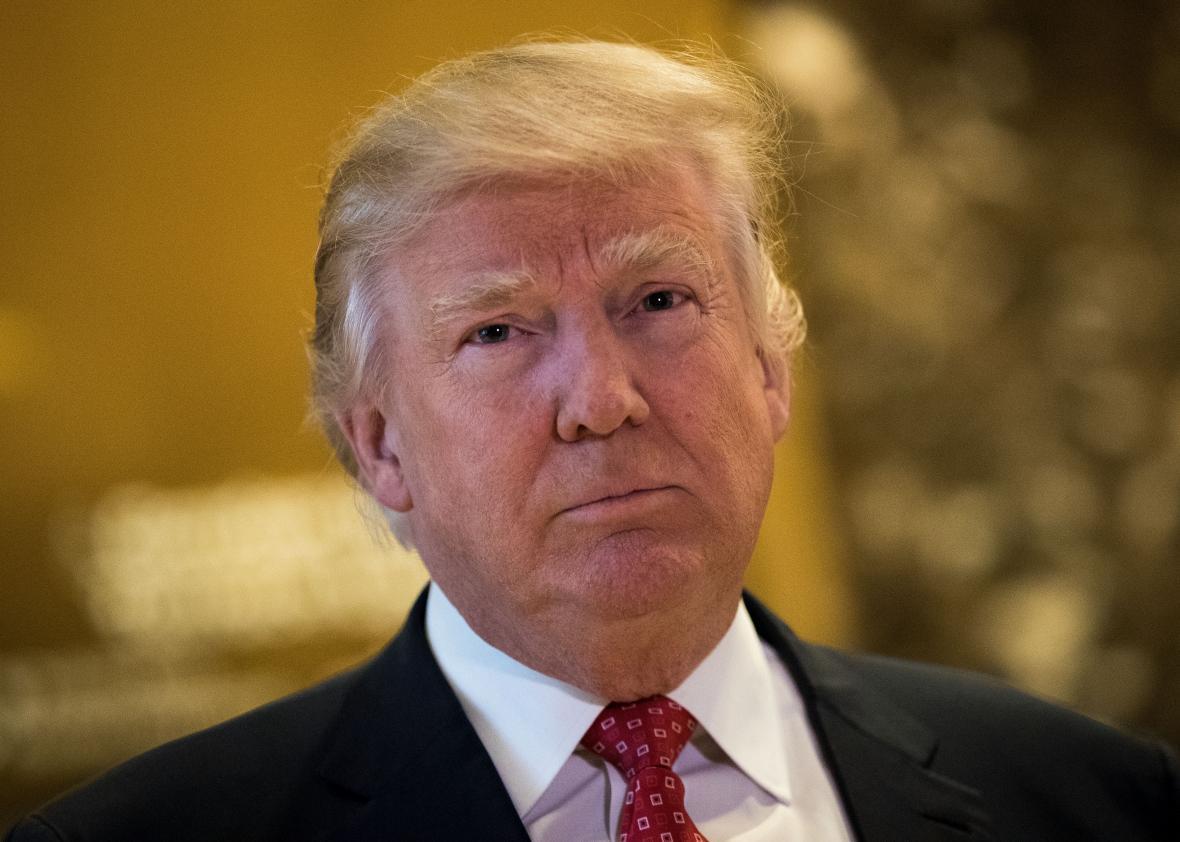The Equal Employment Opportunity Commission may be preparing to withdraw from a trans discrimination case due to “Administration-related changes” at the agency, Slate has learned.
For several years, the EEOC has represented Aimee Stephens in her lawsuit against her former employer, a funeral home. When Stephens told her manager that she was transitioning from male to female, he fired her, explaining that he could not tolerate her “dress[ing] as a woman” at work. The EEOC argued that this termination was unlawful under Title VII of the Civil Rights Act of 1964, which bars “sex discrimination,” including gender nonconformity. A federal judge, however, ruled that the funeral home had a religious right to fire employees for transitioning under the Religious Freedom Restoration Act, citing the Supreme Court’s Hobby Lobby decision. The EEOC announced its plans to appeal the judge’s dangerously incoherent ruling.
But shortly after taking office, Donald Trump named EEOC Commissioner Victoria Lipnic as acting chair of the agency. Lipnic, a Republican, took over from Commissioner Jenny Yang, a Democrat, and was widely expected to move the agency in a more conservative direction. She may have already taken the first step. The EEOC’s opening brief at the U.S. Court of Appeals for the 6th Circuit was due on Thursday—but instead of filing it, the EEOC filed a request for a 30-day extension. It noted tersely that it “requests the extension because of Administration-related changes at the Commission.”
The American Civil Liberties Union also filed a request to intervene in the case and effectively take over for the EEOC. It noted that it is no longer assured that “the EEOC would adequately represent [Stephens’] interests, which it has done up until now.” The ACLU’s motion also stated that “based on the change of federal administration as well as the federal government’s actions over the past few days, Ms. Stephens is reasonably concerned that the EEOC may no longer adequately represent her interests going forward.”
Slate has learned that the EEOC may be planning to withdraw from this case. Moreover, under Lipnic, the agency may no longer pursue cases of anti-LGBTQ discrimination with the vigor that it did under Democratic chairs—although it will move forward with some LGBTQ-related discrimination cases, at least for now. The five-member commission has one vacancy, which Trump will soon fill.
Over the last eight years, the EEOC has developed several theories explaining why anti-gay and anti-trans discrimination in the workplace is already illegal under federal law. These theories are already being tested in federal court, and a majority of judges have thus far been receptive. Courts are not obligated to follow the EEOC’s position on employment discrimination, but its input is persuasive. The agency’s decision that anti-gay workplace discrimination is already illegal was decided by a 3–2 vote. A future Republican majority on the commission can reverse that position, and minimize the agency’s involvement in LGBTQ discrimination cases more broadly. In fact, that process has already begun.
*Update, Jan. 27, 2017: A high-ranking attorney at the EEOC disputed Slate’s characterization of the agency’s decision, noting that the EEOC has not yet formally withdrawn from the litigation. The attorney would not, however, say that the agency plans to continue representing Stephens. In light of this conversation, our characterization of the EEOC’s intentions has been altered to state that the agency may withdraw from the suit.
